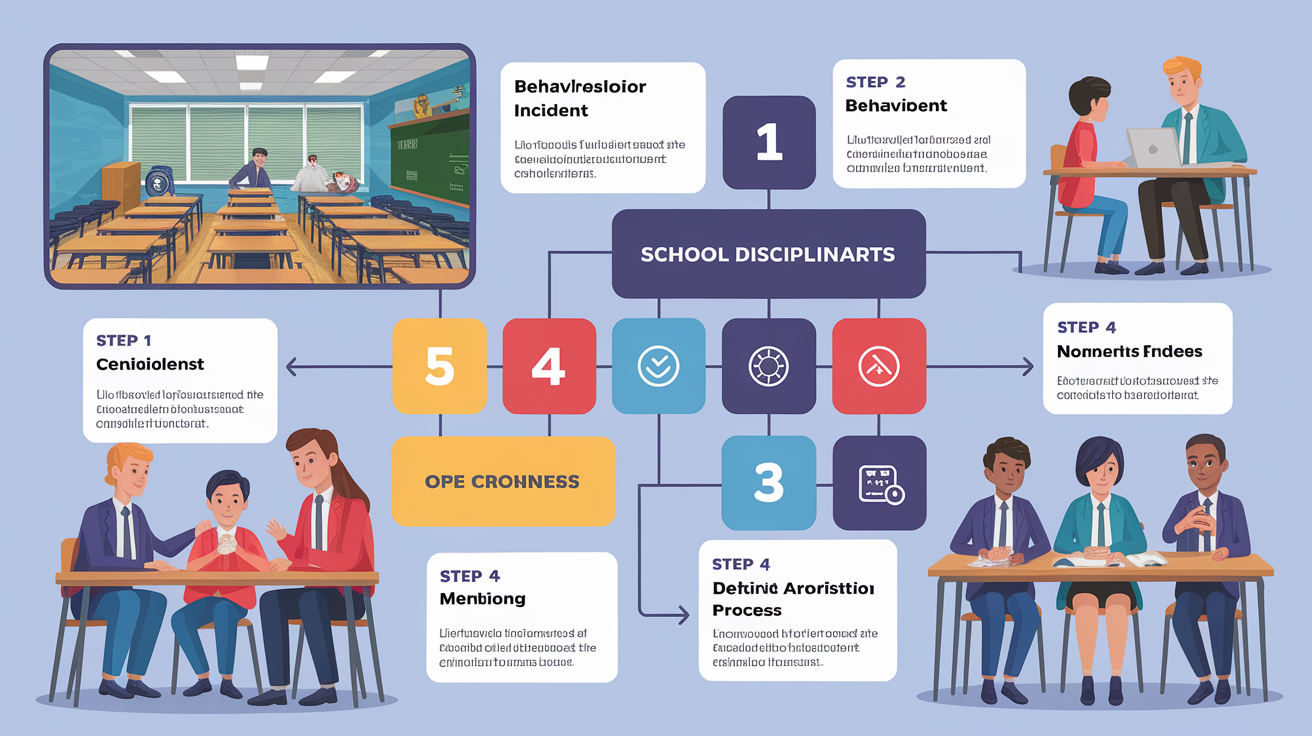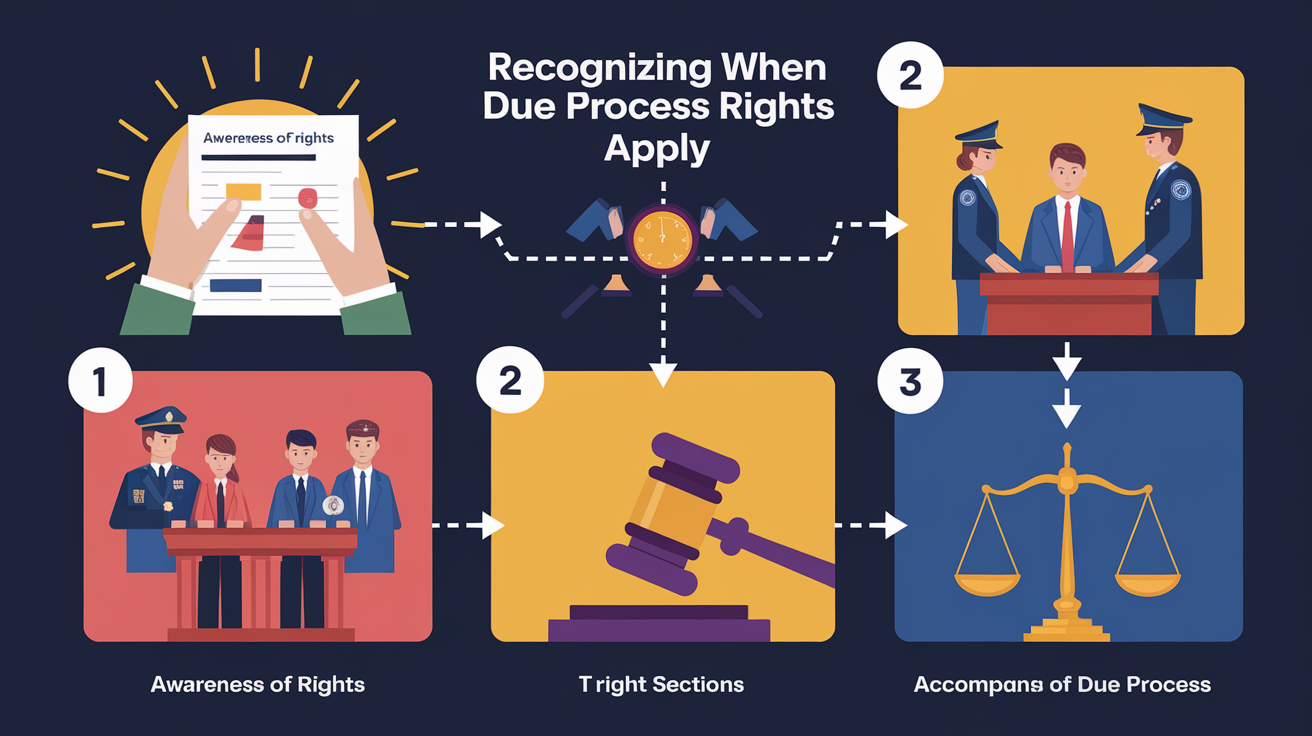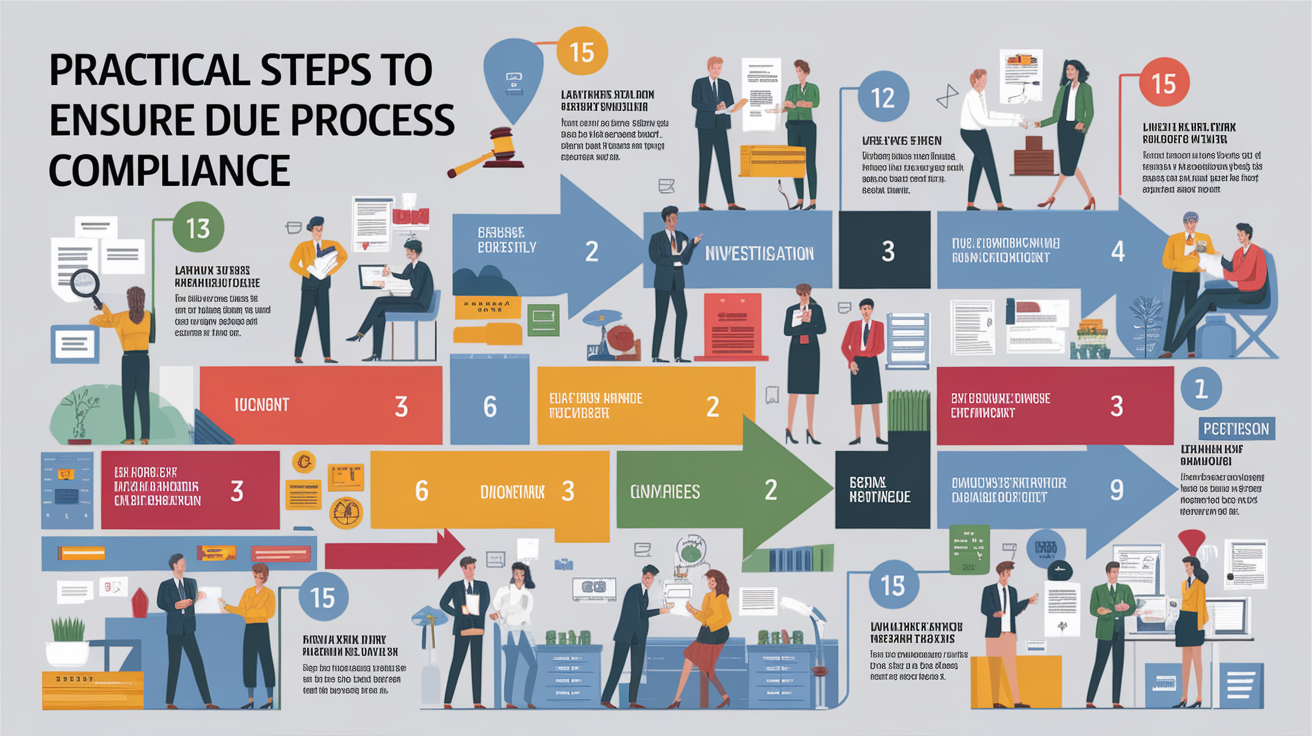Understanding school-discipline-student-due-process-rights
Due process rights in school discipline are anchored in the Fourteenth Amendment, which prevents the government—including public schools—from depriving students of their education without fair procedures. In practical terms, this means that before a school can suspend, expel, or otherwise discipline a student in a way that affects their access to education, it must follow procedural safeguards.

Think of it like standing at the bottom of a mountain without climbing gear: without due process, the ascent to fairness is nearly impossible. The courts have long recognized that education is a form of “property” and “liberty” interest worth protecting. Landmark cases such as Goss v. Lopez confirmed that even short-term suspensions must be preceded by notice, explanation of evidence, and a chance for the student to respond. This principle applies to all public school students, and understanding it is the first step toward ensuring fairness.
Recognizing When Due Process Rights Apply
When does due process kick in? Any time a school takes disciplinary action that could meaningfully restrict a student’s access to education—such as suspensions, expulsions, or certain disciplinary transfers—the law requires procedural fairness. Not every minor detention is subject to these protections, but serious consequences almost always are.

The courts have clarified that due process scales with the severity of the punishment. Longer suspensions and expulsions often require more formal procedures, including hearings and written decisions. Even temporary suspensions (ten days or less) still require basic notice and opportunity to be heard under Goss v. Lopez.
- Suspensions longer than 10 days: typically involve formal hearings.
- Expulsions: require significant procedural safeguards, including evidence review.
- Disciplinary hearings: must allow a meaningful chance to respond, though rules are less strict than in criminal trials.
For students with disabilities, special education laws can add additional protections to ensure disciplinary measures do not violate their rights.
Practical Steps to Ensure Due Process Compliance
Compliance isn’t just about avoiding lawsuits—it’s about trust. Here’s how schools and families can safeguard student rights while keeping discipline fair.

- Provide timely notice: Inform the student and parent about the alleged misconduct and its potential consequences as soon as possible.
- Share the evidence: Disclose the facts the school is relying on. This might include witness statements or reports.
- Offer an opportunity to respond: Allow the student to tell their side of the story before decisions are made.
- Document everything: Keep records of notices, hearings, and decisions—this is vital if questions arise later.
- Adjust for severity: The more serious the disciplinary action, the more formal and thorough the process should be, following the flexible approach outlined in practical due process requirements.
In serious cases like expulsion, additional procedural safeguards may include the right to present evidence, call witnesses, and receive a written explanation of the decision.
Advocating Effectively for Students’ Due Process Rights
Advocating for a student in a disciplinary setting can feel like stepping into a labyrinth—tight corridors, unclear turns, and a sense of urgency. The goal is to navigate it with clear direction.
Educators, parents, and student advocates can protect rights by:
- Knowing the rules: Review the student handbook and district policies on disciplinary procedures.
- Asking questions: Don’t hesitate to request clarification on timelines, evidence, or next steps.
- Engaging in the appeals process: Many school boards offer formal appeals for suspensions and expulsions.
- Involving legal assistance when necessary: While due process hearings don’t require legal counsel, having advice from someone with experience in educational law can be valuable in complex cases.
- Documenting unfair treatment: Keep a record of any procedural gaps—these could be critical if challenging a decision later.
For students in special programs, such as those protected under Title IX or disability law, additional advocacy steps might involve specialized accommodations or alternative interventions like restorative justice.
Benefits of Upholding school-discipline-student-due-process-rights
Why go through all this effort? Because due process strengthens both fairness and community trust. According to studies, schools with transparent disciplinary procedures see fewer disputes escalate to litigation, and students are 25% more likely to engage positively with school rules when they understand their rights.
Meaningful due process also reduces the risk of inequitable outcomes. Without safeguards, disciplinary sanctions can disproportionately affect certain student groups, feeding into the school-to-prison pipeline. Upholding these rights is more than compliance—it’s an investment in educational equity.
- Fairness: Students feel heard and respected, improving their relationship with the school.
- Legal protection: Schools avoid costly and reputation-damaging lawsuits.
- Better outcomes: Students are more likely to learn from disciplinary measures when they perceive them as fair.
- Community trust: Parents and stakeholders gain confidence in school leadership.
As the courts have consistently shown—from Goss v. Lopez to Carey v. Piphus—procedural fairness is not a bureaucratic hurdle but a fundamental right. Protecting it serves both justice and education in equal measure.







